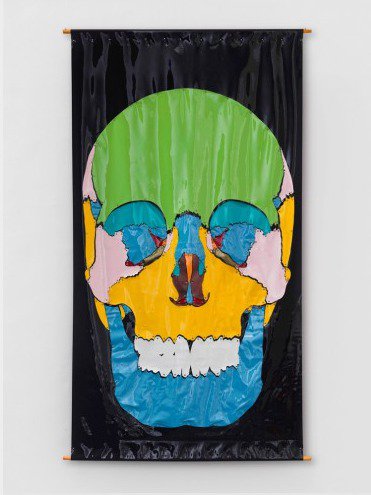Kiki Kogelnik and Manuel Graf
dal 13/9/2012 al 29/12/2012
Segnalato da
13/9/2012
Kiki Kogelnik and Manuel Graf
Kunstverein Hamburg, Hamburg
Architecture is a frequently reoccurring theme in Graf's, in the way he expresses an interest in examining and experiencing objects. On the upper floor, 90 "Pop-related works" by Kiki Kogelnik.

Manuel Graf
ls sont fous ces Romains!
September 15 - December 2, 2012
Manuel Graf (*1978, lives in Düsseldorf), who studied sculpture at Kunstakademie
Düsseldorf, has consistently refused to confine himself to any such limitations or
pigeonholing in his work. Architecture is a frequently reoccurring theme in his
art-not from a practical design perspective, but rather in the way he expresses an
interest in examining and experiencing objects. His current project explores the
idea that there are three basic types of architectural arrangement. The first type
is a longitudinal arrangement along the length of the building, the second is
focused around a central point, and the third is decentralised architecture, where
the central point is rendered insignificant. The first two types have been
relatively widespread since antiquity, particularly in religious buildings, but the
third has primarily been characterised by one specific example: the four-iwan
mosque. Graf is currently channelling his years of research into this type of
construction into a film project that will be presented in the context of the
exhibition on the ground floor of the Kunstverein.
The exhibition is funded by: Kunststiftung NRW
----
Kiki Kogelnik
I Have Seen the Future
September 15 - December 30, 2012
The solo show on Kunstverein Hamburg’s upper floor marks the first extensive
appraisal of the oeuvre of Austrian artist Kiki Kogelnik (1935-1997) in Germany. The
majority of the 90 exhibits compiled here can be considered "Pop-related works",
whereby the exhibition focuses on the 1960s and thus on a relatively short but
intense period in Kiki Kogelnik’s oeuvre. The pictorial worlds on canvas or paper
are strongly influenced by Pop Art, though she in fact developed her own subjects
and visual vocabulary, which she then pursued for a further 30 years and realized
using different media. Kogelnik relocated to New York in the early 1960s and her
personal acquaintance with countless Pop artists and her familiarity with the social
debates of the day form the backdrop to her artistic effort. Our focus on this
timeframe helps to structure the different currents in her work as well as
highlighting central stylistic features and emphatic and expressive artistic forms.
Human limbs such as arms, legs and hands (the hand with the wristwatch represent the
artist herself) repeatedly crop up in Kogelnik’s art. In motion they seem to float
in an airless space. Kogelnik uses stencils to transplate the human figure into her
pictures. To this end, friends and acquaintances were asked to lie down on strips of
paper on her studio floor. She painted their outlines, which she then used to make
the stencils. The shift in working surface from the horizontal to the vertical is a
method Kogelnik shares with artists such as Robert Rauschenberg and Yves Klein. But
unlike many of her fellow Pop artists, the people who populate her works are not
celebrities, but people she knew, whose faces we therefore do not recognize. In fact
the heads are often absent, or simply replaced by circles. Toward the end of the
1960s she advanced the technique of making “cut-outs” and transformed these into
sculptures. In her “Hangings”, the outlines of a body are now transposed onto
colored vinyl foil, cut out, and then hung over clothes hangers or rods – and
therefore somehow resemble skin that has been peeled off someone.
The exhibition is accompanied by an extensive publication with essays by Angela
Stief, Annette Tietenberg and Florian Waldvogel.
The exhibition is funded by: kiki Kogelnik Foundation Wien/New York.
----
Press contact:
Beate Anspach, Public Relations Telephone +49(0)40 32 21 58 or presse@kunstverein.de
Opening: Friday, September 14, 2012
Der Kunstverein, seit 1817.
Klosterwall 23 20095 Hamburg
Hours
Tuesday – Sunday and Public Holidays 12 am – 6 pm
Admission:
3,- Euro / Reduced 1,50 Euro
Free entrance for members of the Kunstverein, kids and
young adults under age 18



